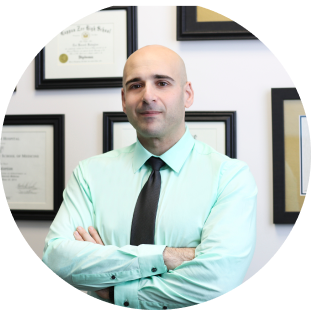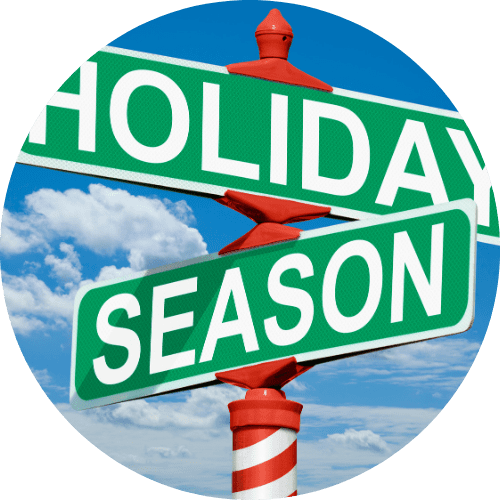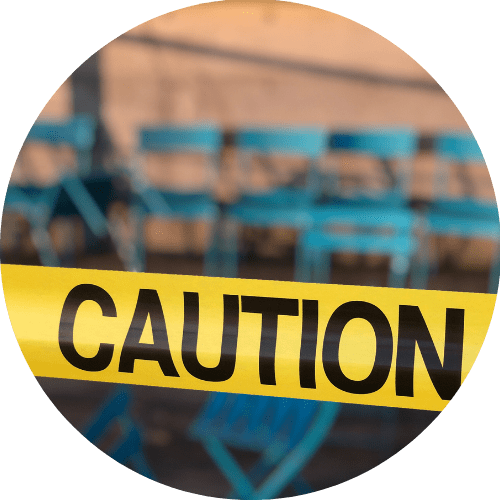The blog below is from Bob H., a member of our community. In this blog, Bob reflects on his past to highlight the importance of choice. He shares his opinion about the community we have fostered and our book club that is held at the end of each month in addition to our weekly meetings.
____
As flawed human beings, we frequently learn things by making mistakes and suffering the consequences. Often, we make the same mistakes over and over before recognizing what we were supposed to learn. I was fortunate enough to learn one very important lesson as a young man without having to endure any pain. In this case, the mere threat of disaster was sufficient to get the message through.
It was in the fall of 1985, and I was at a personal low point. I had failed to get into the college of my choice and was working full time at a discount tool store, and part time at a chain of dairy stores, while enrolled full time at a community college for a year in the hope of transferring into the school I wanted to attend. I was not happy with my situation, and I was working hard to improve it, but I was definitely failing to enjoy the process as I did.
One night, after a 4:30 AM 4-hour shift at the dairy, followed by a full day of classes and nearing the end of an 8-hour shift at the tool store, I ran into an old friend I had grown up with and he asked if we could go get a drink after I got out and catch up a little. I was done about 10 and met him in the parking lot and we decided to go shoot some pool in the back room of a place called Chuck’s Tavern. We get there about 10:30, ordered a couple drinks and started to play.
I don’t know how long it had been, but after a while we started to notice a table of 6 guys on the other side of the room who were getting pretty drunk and obnoxious. I failed to pay the proper attention to that fact, and it got us into trouble.
Not long after I had first noticed them, they started staring over our way, looking menacing and angry. I was just dumb and innocent enough to think to myself, “maybe we’re hogging the table?” A few minutes later five of the six got up and walked toward us. One picked up a pool cue while another set his beer in the middle of the pool table and picked up the ball I was about to strike. There were some “pleasantries” exchanged, and then the smallest and drunkest of them came over and puffed out his chest and bumped me. He was holding the billiard ball in his right fist and I knew he was about to hit me with it. The cue guy was now brandishing it as a weapon and the other three had taken up positions in front of the only exit. The electricity in the room was off the charts and things were unquestionably going to go bad very quickly.
I had never been in a situation like this, and I was trying desperately to figure a way out of it without the six on two fight. Before billiard ball guy could hit me, I grabbed him and threw/shoved him into the three by the exit and they all fell into the main bar room. (Bear with me friends, I promise this isn’t an “I won the bar fight story” – the fight is just about to come to an end and nobody gets hurt.)
I did a quick assessment at this point and couldn’t believe how bad our situation was. Our only exit was still blocked and was now filling with bar patrons rushing for a view of the fight and worse yet, thinking I was the aggressor. A pack of drunken, angry troglodytes about to beat the hell out of my friend and I and no way out of it. The sixth guy had gotten up and was now running towards me screaming. Pool cue guy was chasing my friend who was coming around the table towards me. The immediate future was looking bleak.
At that moment, salvation appeared in the doorway in the form of Chuck. You remember Chuck. He owned this fine establishment. He was walking over the pile of miscreants on the floor while holding a baseball bat in his left hand and a sawed-off shotgun (I kid you not!) in his right. He slammed the bat hard into the door frame making a shockingly loud sound. That and Chuck’s countenance were enough to silence and still the room. He broke that silence by saying loudly, “Get the F*** out of my bar.” I responded “Yes, sir!” and we left. Quickly.
Why am I relating this story to you now? I’ve never told it outside my family before, though I do use it as a cautionary tale with my children and loved ones at times. The lesson I learned that day is the important part. Different people will take different lessons from a situation like that. Some would say we were attacked by some belligerent drunks and therefore, what choice did we have?
I reject that thinking entirely. I know I did have choices and I failed to exercise them wisely. My instincts told me things were going to go sideways and I failed to heed that warning. I put myself in a situation where there were no good options as a result.
But the most important lesson I learned that day was this. I don’t want to get into really dangerous bar fights and have a shotgun pointed at me threateningly. As I had shown earlier, I can be a little slow on the uptake. This time, I thought I had the solution.
Bar fights happen in dive bars. Don’t be there when they do! An elegantly simple solution that I have remained committed to ever since. No late nights in dive bars, no more weaponized wooden sporting equipment, no more shotguns, no more bar fights!
A couple of things brought this story to mind at the moment. The first was reading Tro’s five-year anniversary post.
Tro may not have been facing physical malevolence, but his is definitely a story of being outnumbered in a bad situation. He was quicker than I and recognized the need to take action in time.
The forces threatening him were common to so many of us, but as a young doctor he was closer to the center of that storm. It was coming directly for him not just on the level of his personal health, but his career and identity both as a person and professional as well.
He recognized the danger and knew he was going to have to give up on a path he had charted for himself and worked hard to achieve. It was going to take a huge risk to get out of it. He has shared the story of that jump with this community and in so doing, has inspired many others to take a leap of faith.
At bottom, Tro was applying the lesson I had learned. He decided not to be there. He recognized that bad things were going to be happening at the confluence of several societal streams and he needed to be somewhere else to continue his career without losing himself in the ethical flood.
His decision, as he recounts it, was to “never let anything come between myself and my patients.” That is what he saw he would lose if he stayed where he was, and it was a price he was unwilling to pay. Impressively, he didn’t even need the shotgun to see it!
The second thing that brought the Chuck’s Tavern lesson to mind was a downstream effect of the first.
Tro’s decision has led to the development of a thriving direct primary care practice, a very successful podcast, and a large and growing community of associated health care providers and patients. All of which see the doctor patient relationship in a vastly different way than the system he had trained for and opted to leave behind.
In developing and serving the community that has grown around his practice, Tro and his talented team have had to chart unexplored pathways and use new tools, producing and employing cutting edge science while disseminating all to the widest possible audience.
Recently, the practice developed an app to serve the community with information and support for individuals striving to achieve health. It is packed with tools and information, organization, and communication forums. It is a place to find support and share practical solutions to the problems we all face daily in pursuing a healthy lifestyle.
One of the tools provided there is access to a monthly book club. But as the old saying goes, this is not your parents’ book club. This is not a few likeminded and closely geographically related people getting together for coffee and a chat in someone’s living room. This is a meeting that brings together a large and diverse group of doctors, health care professionals, and an eclectic assemblage of patients from all over the country and all types of experience. It uses new technology to bring this group together in one virtual meeting room and allow for the open exchange of ideas about and reactions to someone else’s intellectual effort. This, done well, is the basis of all human progress, in a new and exciting format.
David Goggins You Can’t Hurt Me was our first book, and got us off to a great start. All about the mindset a person needs to employ in order to make it through the inevitable pitfalls and pain in life. A deeply revealing autobiographical account of an extraordinary life with the stated purpose of helping the reader develop the mindset that will allow them to write their own life story.
The next two books were similar in that they both sought to define the modern monsters that plague us. But they took different approaches in interesting ways. One an investigative journalist, and the other a doctor, both looking into the leviathans that Tro had seen coming for him. Michael Moss, in Salt, Sugar, and Fat, digging out the story of the food and advertising industry giants that work tirelessly to hook us on their products, leading to exponential growth both in their bottom lines and our waistlines. Dr. Lustig, in Metabolical, diagnosing the corruption and failure of the government, medical, and insurance industries in response. Both compellingly detail massive forces aligned by an unenlightened self-interest that places them at irreconcilable odds with our wellbeing.
Those massive societal forces all benefit from the development of a Standard American Consumer. They need us to be “heavy users” of what they’re selling, which in the final analysis is daily dependence on them. They test and prod, poke and manipulate constantly to keep us moving, herd-like, toward the trough at which they need us to feed. The effect has been disastrous, as any person with open eyes can see.
It’s tempting, in the face of all this, to say “What choice do we have?” But the truth, as always, is more complex.
It begins with the recognition of what is actually happening. They aren’t hacking and controlling you, they’re hacking and controlling some fictional composite Standard American Consumer. We don’t have to play the part they’ve written for us. We can make a conscious decision to step off their “hyper palatable” and “super convenient” glide path to perdition. You are not a standard heavy user of anything without your consent. You are an individual possessed of your own free will.
The next step was explained very well by our first author, David Goggins. Early in his book, he detailed a lesson he had taken from an experience with two of his childhood teachers. One was very hard on him, demanding of his time and attention when he had precious little of either to give. The other neither demanded nor expected anything of him, just letting him pass through her class as a minor inconvenience. Looking back, he recognized that the scowling, hard teacher cared about him and taught him things that served him later, while the smiling easy teacher had not cared about his development at all. He phrased the lesson, “never trust a smile, or judge a scowl.”
The next step then, is to recognize and be grateful for the problems you face – that thing that scares and challenges you, that obstacle that seems insurmountable right up until you’ve scaled it. Those are the things that move us toward our best selves and most fulfilling lives.
Once you’ve recognized these realities, your choice is simple. Opt out. Don’t be there!
And when you do, opt in to a community by choice, and join us in our next book exploration: Atomic Habits, by James Clear. It’s a remarkably detailed map of practical steps away from “there.” In his words, it’s about being the designer, not the consumer, of your life.
And by the way, thanks Chuck!





